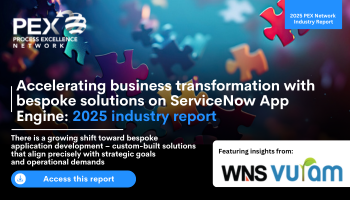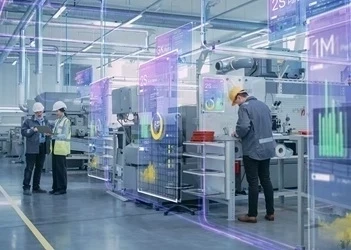US court dismisses Celonis’ antitrust claims against SAP
SAP scores an early win in its ongoing legal dispute with Celonis
Add bookmark
A US court has dismissed Celonis’ antitrust claims against SAP. This signals an early win for SAP in the ongoing dispute between the two organizations.
A federal judge in San Francisco dismissed claims that SAP blocked access to data in its systems to give an unfair advantage to its Signavio unit. The judge said Celonis can try to revise and refile the claims.
In March, Celonis accused SAP of violating US antitrust law and other provisions by making it harder and more expensive for Celonis to access client data stored in SAP’s applications.
Join the PEX Network community

Don't miss any news, updates or insider tips from PEX Network by getting them delivered to your inbox. Sign up to our newsletter and join our community of experts.
Learn MoreWhy did Celonis sue SAP?
Process mining provider Celonis claimed that SAP has “deliberately sought to exploit its market power” over its large, entrenched enterprise resource planning (ERP) customer base by imposing new policies and restrictions in an attempt to destroy Celonis’ business.
What’s more, Celonis accused SAP of engaging in increasingly egregious conduct targeting its customers to coerce them into using Signavio, SAP’s own process mining offering. Celonis sought an injunction prohibiting SAP’s “illegal conduct,” monetary damages and all other legal and equitable relief available under law and which the court may deem proper.
“This case is about SAP’s campaign of anticompetitive conduct designed to exclude third-party application and technology providers from its dominant ecosystem, including its acts of tortious interference and false advertising in furtherance of that campaign, in contravention of the promises SAP has made to the market and regulators,” the lawsuit read.
SAP agreed not to interfere with Celonis data extractor
In June, SAP said it would not interfere with Celonis data extractor to enable customers to access their own data as the antitrust litigation case between the two companies continued. SAP also agreed not to impose any additional fees or licenses on customers for such use, until the case has been resolved.
“No system should hold customers back from transforming their processes,” commented Carsten Thoma, president and board director at Celonis. “Processes should be designed to work best for the company, not the systems the company operates on. That’s why the Celonis platform was designed to help customers optimize their processes to achieve their goals across systems and departments.”
Accelerating business transformation with bespoke solutions on ServiceNow App Engine

Today, off-the-shelf software solutions offer diverse features that enable vast opportunities to implement and maintain business transformation. However, in some circumstances, capabilities lack the flexibility and specificity required to address the unique challenges and workflows of individual organizations. As a result, there is a growing shift toward bespoke application development – custom-built solutions that align precisely with strategic goals and operational demands.
Download this report to explore how enterprises can harness the power of custom applications to drive meaningful transformation. With the growing adoption of low-code platforms like ServiceNow App Engine, organizations are building custom applications faster and with greater control. By empowering both IT professionals and citizen developers to build tailored solutions, organizations can significantly reduce time to value while maintaining control over quality and compliance.
Download Now






















